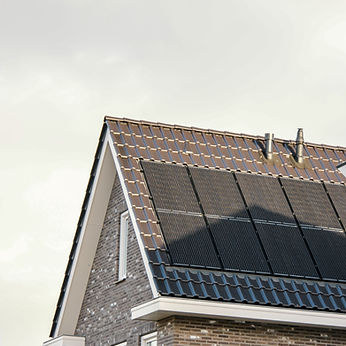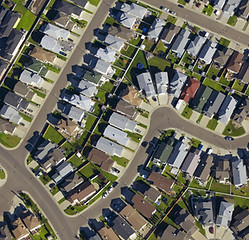Nevada Solar


Understanding Solar in Nevada
Nevada is a powerhouse for solar energy, harnessing the sun's rays more efficiently than almost anywhere else in the United States. With its vast desert landscapes and high sunshine rate, Nevada offers an optimal environment for converting sunlight into clean electricity. The state's typically high electricity rates also make the switch to solar a smart, cost-saving move for residents.
There's an abundance of solar energy waiting to be tapped across the Silver State. Nevada homeowners and businesses are capitalizing on this by installing solar panels on their properties. The investment in solar technology is made even more appealing by the fact that solar installations can be a cost-effective solution to power generation, often resulting in lower and more predictable energy bills. Nevada boasts several large-scale solar farms, too, including installations that stretch across hundreds of acres, generating substantial amounts of clean energy and powering tens of thousands of homes.
Transitioning to solar power is a significant decision for Nevada residents. Understanding the ins and outs of solar energy, exploring the variety of solar options available, and knowing the right questions to ask solar professionals are crucial steps in making an informed choice. With the state's supportive policies and incentives for renewable energy, Nevadans are well-positioned to benefit from sustainable, environmentally friendly power solutions for years to come.
How Solar Works
Solar panels convert solar energy into electricity. They work by absorbing the solar rays from the sun and then converting them to an electric current that is sent to your home or business. The solar power can be used instantly, saved for later use, or sold back to the grid depending on how you configure your solar system!
The amount of solar energy solar panels can generate depends on the solar panel size and how much direct sunlight they are able to capture. The more solar electricity you use, the more solar power is used!
In Nevada, solar panels work in a variety of different conditions and can be used any time, no matter what the weather is like outside! Solar panels in Nevada will generate power even if it's cloudy out or at night.
Your Home Solar Options
When it comes to solar power, your home is one of the best places for you to start. Solar panels in Nevada are a good way to generate renewable energy and save money over time!
There are three main types of solar systems: stand-alone photovoltaic (PV) systems using string inverters or microinverters, grid-tied solar systems with battery backup inverters or without battery backup inverters, and off-grid photovoltaic (PV) systems.
To help you make the best choice, it's important to understand all the different solar panel options available.
Solar energy is the newest way to lower your electricity bill. Here are three of the most popular options, explained in more detail below:
-
Purchase a solar system (with cash or a loan) and own both the system and all the power it produces
-
Lease a system, usually for a monthly rate, and own all the power it produces
-
Enter a “power purchase agreement” (PPA) to buy (in price per kWh) the electricity the system produces

Purchase
You're going solar! When you buy a system, you become the owner of the system and enjoy all the benefits from the electricity it produces. The cost of upkeep varies depending on your provider, but most residential solar systems require little to no maintenance, and some providers offer maintenance services on purchased systems.
Solar panels can be an expensive initial investment, but they are also an investment in the future. Solar panels can lower your utility bills and reduce environment-damaging emissions. And, in most jurisdictions, you can benefit from tax credits or other incentives that promote solar energy. If you do decide to sell your home, you may list the solar power system in the sale just like any other major home component.

Lease
In many markets, you can lease a solar system for a set time period. The solar company owns the system, leases it to you, and is responsible for maintaining it. You make monthly payments to the solar company at a specified rate for use of the system.
Some solar vendors will allow you to get installation and equipment leasing at no up-front cost (“no money down”), though this doesn't mean the system is free. Some companies also offer customers a financing option that allows them to purchase the system after a specific timeframe. A third-party-owned system means the company that installed your solar panels owns them and you will enter into a power purchase or leasing agreement with the company in order to use the solar energy to offset your electricity cost. Make sure you ask questions about whether these agreements are transferable if you plan on selling your home in the future.

Power Purchase Agreement (PPA)
From a consumer’s perspective, a power purchase agreement (PPA) is very similar to a 30-year lease contract. Under the terms of the PPA, you pay for the units of electricity generated by your new solar system rather than leasing the entire system and paying an up-front fee regardless of how much energy it actually generates. A PPA is a contract between you and the company that owns the solar panels. The benefits to a PPA are similar to those of going solar under a lease agreement: no equipment costs, which reduces your upfront investment in the system and lowers or eliminates your monthly electricity bills.
A power purchase agreement, or P.P.A., is also a third-party ownership arrangement because the solar company owns the system; however, some companies give you the option to buy back the system after a certain period of time has passed. You’ve got options for when you sell your home, so make sure to ask about PPA fees at the time of installation.
Nevada Tax Credit
Nevada homeowners have a bright opportunity to save on solar installations through state and federal incentives. Net metering offers credits at 75% of the retail electricity rate for excess solar energy generated, and solar access rights ensure legal barriers won't obstruct installation. Additionally, the federal Residential Clean Energy Credit can reduce solar system costs by 30% for those who qualify. Together, these incentives make adopting solar energy in Nevada an attractive and financially savvy decision.
Details of Nevada Solar Incentives
Federal Solar Investment Tax Credit (ITC)
-
Save 30% on your solar system cost with the Investment Tax Credit (ITC).
-
Eligibility for ITC is for outright purchases only, including cash or solar loans.
-
A sufficient taxable income is necessary to benefit fully from the ITC.
-
Tax-exempt entities may qualify for a direct payment instead of a tax credit.
Nevada Electricity Rates
In Nevada, a state known for its sun-drenched days, solar incentives and rebates are available to help you significantly reduce the cost of solar installation. These financial boosts make it much easier for homeowners in the Silver State to adopt clean, renewable energy.
Nevada Net Metering
One of the top incentives is net metering, a program that credits solar panel owners for the excess power their systems generate. Here’s how it breaks down:
-
NV Energy: Customers with NV Energy can expect to receive credits for their surplus solar power at a rate of 75% of the retail electricity price.
-
Valley Electric Association: If you're a customer under the Valley Electric Association, your credits for excess solar power sent back to the grid will also be valued at 75% of what you would normally pay for electricity.
Additional Incentives for Going Solar in Nevada:
Beyond net metering, Nevada is committed to ensuring its residents can easily go solar through:
-
Solar Access Rights: Nevada’s solar access laws safeguard your right to install solar panels. No contractual or legal barriers, including homeowners’ association regulations, can deny you the right to solar installations. Plus, solar easements can be negotiated with neighbors, guaranteeing unobstructed access to sunlight.
-
Federal Solar Tax Credit: The nationwide Residential Clean Energy Credit can help you cut down the cost of your solar PV system by 30%. This incentive is available to those who purchase their system outright, either with cash or through a solar financing arrangement. It's crucial to note that this tax credit is contingent on your tax liability; you need to have a sufficient taxable income to benefit fully. For tax-exempt entities, direct payment options may be available.
Cash Purchase VS Loan: What’s Best for Nevada Homeowners?
Nevada's sunny disposition isn't just good for weather—it's ideal for solar power investments. When it comes to purchasing a solar panel system, homeowners are often caught between two primary financial paths: cash purchases and loans. Each has its own merits:
-
A cash purchase of a photovoltaic (PV) system in Nevada can deliver significant long-term savings. After the initial investment is recouped—which varies but could average around 7-10 years based on local electricity costs and incentives—homeowners can enjoy the full economic benefits of the system, effectively receiving free energy as the system continues to produce electricity.
-
The upfront cost may be daunting, but with Nevada's generous state incentives and the federal Residential Clean Energy Credit, which can reduce your solar system cost by 30%, the financial barrier is significantly lowered. A cash purchase leverages these incentives immediately, maximizing your savings and increasing the return on investment over the life of the system.
-
On the other hand, financing a system with a solar loan can make solar power accessible without the upfront capital. Loans can often be structured with favorable terms, sometimes with zero down payment and the potential for tax credits to be applied as direct reductions in loan principal. Although this means you will pay more over time due to interest, the monthly loan payments can be offset by the savings on your energy bills, making this a viable option for those who prefer to spread the cost over time.

1
Get your system size and battery details
2
Find your solar cost and energy usage
3
Learn about the incentives in your state
Helping customers make solar simple!
Get the most out of your new home solar system
Switch to solar power and start saving money right away
There are many benefits to switching over to solar energy including lower monthly bills, improved property value, and cleaner air. The solar panels in Nevada can help you live a more sustainable lifestyle while also lowering your carbon footprint by displacing emissions that would have been created from traditional power plants. Solar is an investment with the potential for significant returns on investment, so solar panels are quickly becoming a more affordable way to generate power!
You may want solar installation costs depending upon your area--read more about that below--and you'll want to ask solar experts about solar panel efficiency so that you know how much power each solar cell produces and what the solar cells are made of.
For those looking to reduce their environmental footprint, solar installation is becoming more affordable with the help of government incentives and rebates. There are around 20 different types of tax credits for investments in renewable energy or any infrastructure project that directly reduces greenhouse gas emissions (such as wind farms). These tax benefits can be used by both individuals and corporations alike while also helping defer some upfront costs associated with installing a system such as labor expenses or expensive panels themselves.
For example, an individual might have difficulty paying $25K upfront on equipment worth $32K but they may qualify for a 30% federal investment credit which would lower the amount down to just under $21k! The Solar Energy Industry Association estimates that about half of all new homes will use this solar energy by 2022, so solar installation is becoming an increasingly popular option to go green!



